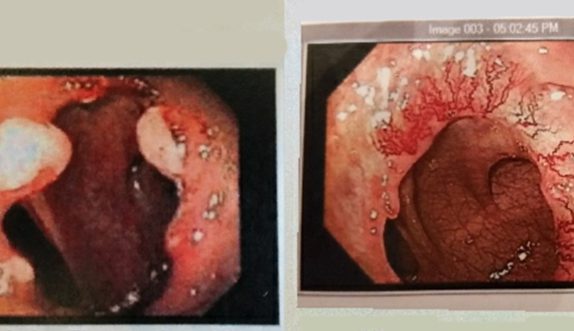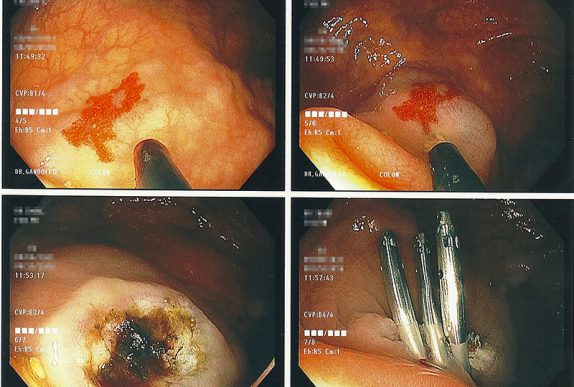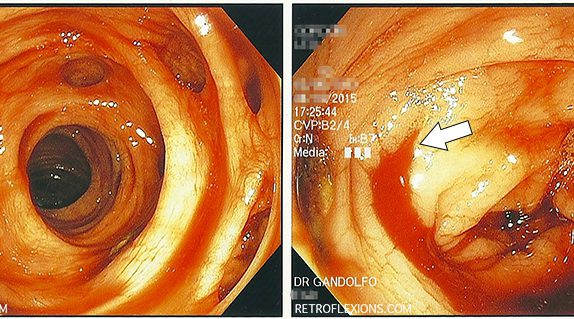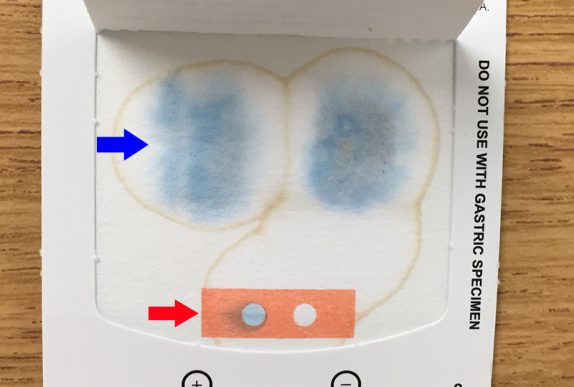Over two years ago, I had a colon resection for the removal of a cancerous tumor (stage 2A). Ever since, I have had on and off bleeding in my stool. My surgeon has done two sigmoidoscopies and my gastro doctor has done two colonoscopies.
One useful technique to minimize the risk of perforation when treating large angiodysplastic lesions (let's arbitrarily define large as greater than 10-mm in diameter) is to...
With all this talk about bleeding, it should come as no surprise that "Should I stop my aspirin?" is one of the more common questions that I get asked by patients who are being seen to arrange screening colonoscopy. Luckily, this question has been answered already by several of the gastroenterology societies. For the average patient on aspirin...
Is this common practice of bridging from Coumadin to an injectable anticoagulant back to Coumadin necessary? From a practical point, it is usually a major inconvenience for patients and doctors alike. Many patients are uncomfortable giving themselves injections at home. The injectable anticoagulants are sometimes expensive. Sometimes despite good instruction, they are administered incorrectly by the patient, or on the wrong dates. What if Coumadin was just held and later restarted without the bridging?
(Don't click if you don't want to see blood!) Diverticular bleeding can happen without warning, and is painless. A large volume of bright red or sometimes dark red blood per rectum is often the only symptom. In most patients who are not on blood thinners, diverticular bleeding eventually stops by itself.
The purpose of this article is to define a few terms and clarify some common misconceptions about rectal bleeding.
Occult gastrointestinal bleeding simply means that there is blood loss into the GI tract that cannot be seen with the naked eye (as opposed to overt GI bleeding, where blood is seen). Typically, patients with occult GI bleeding have slowly progressive anemia due to slow chronic blood loss. There are a variety of causes of … Read more
These are “kissing” duodenal ulcers. The ulcers are on opposite walls of the duodenal bulb, and are basically touching each other, hence the “kissing” description. If you notice, the larger ulcer on the right has a flat dark spot in the middle…this is the former site of the large artery that was actively bleeding 24 … Read more







